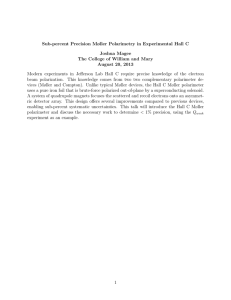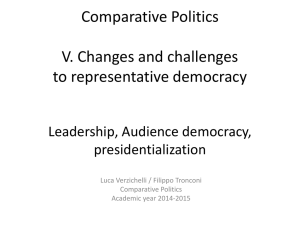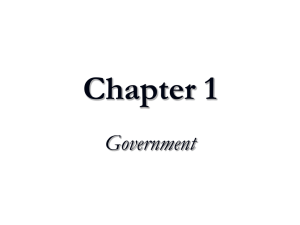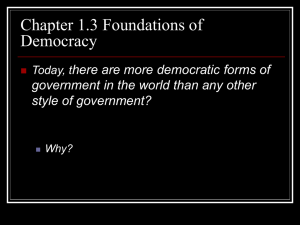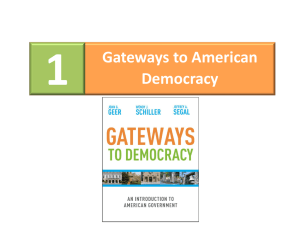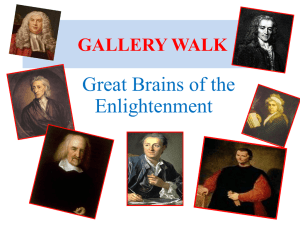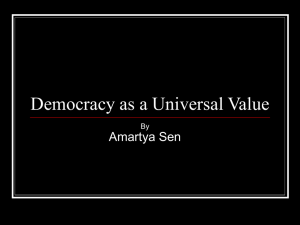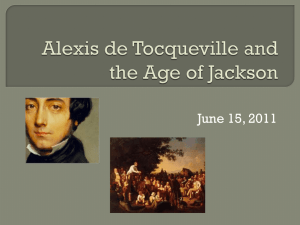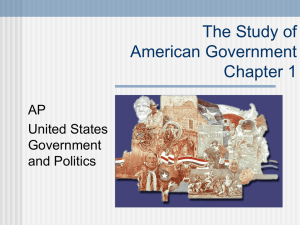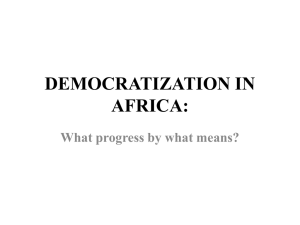Comparative Politics Key Points
advertisement
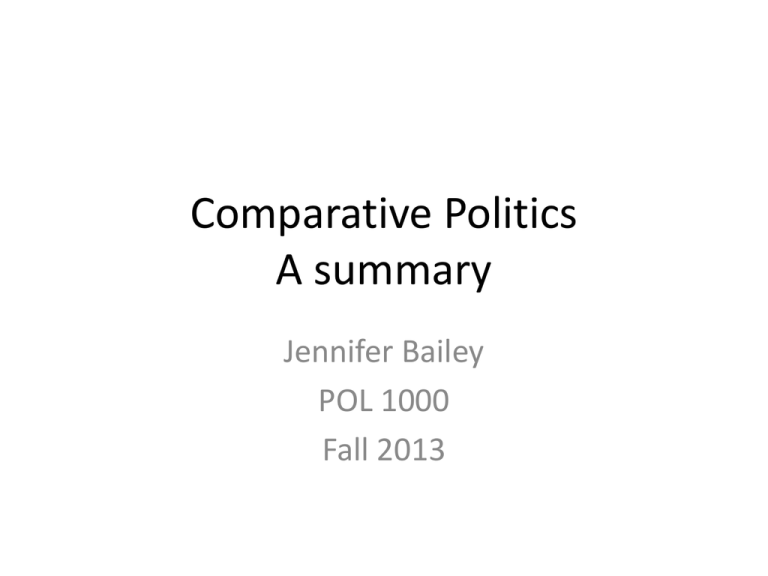
Comparative Politics A summary Jennifer Bailey POL 1000 Fall 2013 Pensum – KP/CP • Sodaro, Michael J. (2008), Comparative Politics: A Global Introduction, 3rd edition. McGraw-Hill Higher Education. Kap: 1-12; 1421. • Jørgen Møller (2012), Statsdannelse, regimeforandring og økonomisk udvikling (hele boka) • Heywood, Andrew (2007), Political Ideologies: An Introduction, 5th edition. Palgrave/ Macmillian. Paperback. Kap. 1-5, 7, 10, 12. • 4 articles and chapters Key Themes Covered • Ideas and Ideologies – – what is the good society? (values) • Method – – Emprical knowledge – how do we know what we know? • The State – the building block of comparative and international politics • Democracy – – – – Our good society Where does it come from? What does it take? How do we make it work? • Individual countries Ideas and Ideologies • What is an ideology? – Package of beliefs: How the world works, how it should work, and plan of action • Which? – Liberalism, conservatism, socialism, fascism, nationalism, some on fundamentalism, anarchism • How to study: – Focus on package of beliefs • Pure types vs «spin offs» – Understand basic assumptions – «Tensions between» boxes useful – «isms» boxes Method • Boring! Hard to understand! • BUT fundamental & essential – Making and evaulating arguments about causality – Sodero: • Hypothesis making and testing – Møller • the comparative method with a few cases • Example: how academic debate develops – Bailey, Møller and Sodero: the logic of comparison and evidence • The language of method (including but not limited to): – Theory, cases, causes, causal mechanisms, variables, operationalization, methods of difference & agreement, MSSD & MDSD, path dependency, hypothesis/hypothesis testing What is the state? • Weber, Møller, Sodero (Knutsen, Jellinek and international law) • The building block of comparative and international politics • The setting for the evoltuion of democracy • Møller – various theories about development of the state in Western-central Europe – – – – The importance of a state SYSTEM The importance of war-making Feudalism & free cities and the secular state Tilly, Downing, Ertman, Hui • Critical to international politics and development of democracy Democracy • What is Democracy? – Sodero, lectures – Definitions of democracy, ancient and modern – Democracies vs republics – Do we have a democracy today? Democracy: Where does it come from? • Møller – theories of development of democracy and captialism in Europe – Hintze, Moore, Bloch, Weber, Møller, Anderson, Møller, Skocpol, etc. • Also in Sodero’s “what does it take?” (implicit) • Implict in the country studies Democracy: what does it take? • Sodero & lectures – Sodero’s 10 conditions – Extra focus on culture and civil society • The «coconut theory»: – Can democracy take root just anywhere? – Sodero – Afghanistan and Iraq Translating Democracy from Ideal to practice • Organization & institutions matter – Reflect history – Impact outcomes • Constituions and vertical division of power – Confederations, federations and unitary states • Horizontal division of power – Executives, Legislatures (electoral systems) (and Judicial branch) • Civil Society & Interest groups The readings on individual countries • What is the point? • Empirical knowledge of other countries • Apply concepts to individual countries • Source of examples and questions – Yeah, I see that or – That doesn’t fit!
